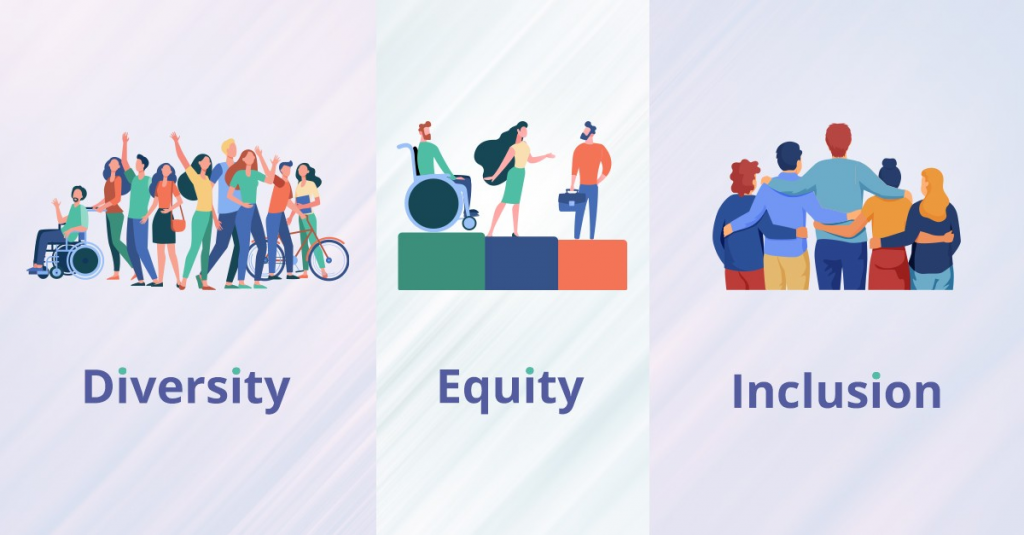- Contact us:
- 03300 535 600
- [email protected]

Sick Note Shake-Up: The UK’s New Work and Health Pilot
August 14, 2024
The DBS & The DBS Update Service: A Comprehensive Guide
November 13, 2024With month 10 out of 12 almost under our belt and 2024 in it’s twilight, the world of HR and employment continues to move at speed, this month seeing a host of new challenges and opportunities emerging.
As we navigate the complexities of AI and automation, hybrid work arrangements, and a changing global economy, it’s essential to stay informed about the latest trends and developments. In this blog post, we’ll delve into some of the most pressing HR and employment news making headlines this week:

Employment Rights Bill Passes First Reading in Parliament:
The Employment Rights Bill, which includes reforms to zero-hour contracts, fire and rehire practices, and flexible working, passed its first reading in Parliament last week. This significant piece of legislation has the potential to significantly impact the rights of UK workers.
The Law, which is regularly improved, expanded and reviewed is an extension of the long established British Labour Law which over its many years has protected and improved the working environment of the national workforce and paved the way for employment conditions and improvements to worker rights.
Zero-hour contracts: The bill is expected to introduce stricter rules on the use of zero-hour contracts, which offer no guaranteed hours of work. This could provide greater job security for workers who rely on these types of contracts.
Fire and rehire practices: The bill may also place restrictions on the practice of “fire and rehire,” where employers dismiss employees and then offer them re-employment on less favorable terms. This is a controversial practice that has been criticized for its unfairness and potential to undermine workers’ rights.
Flexible working: The bill could also expand the right to request flexible working arrangements, making it easier for workers to balance their work and personal commitments.
Overall, the Employment Rights Bill represents a significant step towards improving the rights and protections of UK workers. If passed into law, it could have a major impact on the UK labor market

‘Managers Cannot Be Experts in Everything’: Key Takeaways from the MAD World Summit:
HR leaders attended the MAD World Summit to discuss the challenges and opportunities facing the modern workplace. Key takeaways included the importance of investing in employee development and creating a culture of trust and collaboration.
The MAD World Summit, a gathering of HR leaders, recently highlighted the critical role of managers in fostering a positive and productive workplace. One key takeaway from the event was the recognition that managers cannot be experts in everything. Instead, their success lies in their ability to:
Build Trust: Managers should establish strong relationships with their teams, fostering trust and open communication. This creates a supportive environment where employees feel comfortable sharing their ideas and concerns.
Empower Employees: Rather than micromanaging, effective managers empower their teams by delegating tasks, providing guidance, and trusting employees to take ownership of their work. This can lead to increased job satisfaction and productivity.
Develop Talent: Managers play a crucial role in identifying and developing the talent within their teams. This involves providing opportunities for learning and growth, as well as coaching and mentoring employees.
Create a Positive Culture: Managers are responsible for setting the tone for the workplace culture. By promoting a positive and inclusive environment, managers can improve employee morale, engagement, and productivity.
Adapt to Change: The modern workplace is constantly evolving, and managers must be able to adapt to new challenges and opportunities. This includes staying up-to-date on industry trends, embracing new technologies, and being flexible in their approach.
By focusing on these key areas, managers can create a more effective and fulfilling workplace for their teams.

Younger LGBTQ+ Staff Look for Visible Allies Before Accepting Job Offers:
A survey by Stonewall found that younger LGBTQ+ workers are more likely to seek out visible allies within a company before accepting a job offer. This highlights the importance of creating inclusive workplaces where all employees feel valued and supported.
The Stonewall survey, which found that younger LGBTQ+ workers are more likely to seek out visible allies within a company before accepting a job offer, highlights the growing importance of creating inclusive workplaces. This is especially true for younger generations, who are more likely to prioritize diversity and inclusion in their career choices.
Key findings from the survey:
Visible allies: Younger LGBTQ+ workers are more likely to seek out visible allies within a company before accepting a job offer. This suggests that they value having role models and mentors who can provide support and guidance.
Inclusive company culture: LGBTQ+ workers are also more likely to consider a company’s overall culture and commitment to diversity and inclusion when making job decisions. This includes factors such as having LGBTQ+ staff networks, inclusive policies, and a strong anti-discrimination stance Importance of allies: The survey highlights the crucial role that allies play in creating inclusive workplaces. Allies are individuals who support LGBTQ+ rights and create a welcoming environment for all employees.
Implications for employers:Create inclusive workplaces: To attract and retain top talent, employers need to create inclusive workplaces where all employees feel valued and supported. This includes having clear policies and procedures in place to address discrimination and harassment.
Promote diversity and inclusion: Companies should also take steps to promote diversity and inclusion within their workforce. This can include initiatives such as diversity training, mentorship programs, and employee resource groups.Visible allies: Employers should encourage employees to become visible allies and support LGBTQ+ staff. This can help create a more welcoming and inclusive environment for all employees.
Overall, the Stonewall survey underscores the importance of creating inclusive workplaces for LGBTQ+ employees. By taking steps to promote diversity and inclusion, employers can attract and retain top talent and create a positive and productive work environment.

Strengthening Protections for Whistleblowers: An Amendment to the Employment Rights Bill
The Employment Rights Bill, a significant piece of legislation currently under consideration in the UK, has the potential to provide stronger protections for whistleblowers. One proposed amendment to the bill could offer additional safeguards against unfair dismissal for individuals who report wrongdoing within their organizations.
Why is this amendment important?
Whistleblowers play a crucial role in exposing unethical or illegal activities within companies. However, reporting misconduct can often come at a significant personal cost, including the risk of losing their job. Strengthening protections for whistleblowers is essential to encourage individuals to come forward and report wrongdoing without fear of retaliation.
What are the potential benefits of this amendment?
- Increased Reporting: By providing stronger protections against unfair dismissal, the amendment could encourage more workers to report misconduct. This could help to uncover wrongdoing and prevent harm to individuals, organizations, and society as a whole.
- Improved Corporate Governance: Whistleblowers can play a vital role in improving corporate governance by holding organizations accountable for their actions. By protecting whistleblowers, the amendment could help to create a more ethical and transparent business environment.
- Enhanced Public Trust: When individuals feel safe to report wrongdoing, it can help to build public trust in organizations and institutions.
What are the potential challenges to implementing this amendment?
- Employer Resistance: Some employers may oppose the amendment, arguing that it could make it more difficult to manage their workforce.
- Balancing Interests: It may be necessary to balance the interests of whistleblowers with the need to protect businesses from frivolous or malicious claims.
- Enforcement: Ensuring that the amendment is effectively enforced will be crucial to its success.
Overall, the proposed amendment to the Employment Rights Bill represents a significant step towards strengthening protections for whistleblowers in the UK. If passed, it could have a positive impact on corporate governance, public trust, and the overall ethical climate of businesses.

PMI: How We Built a Global DEI Framework:
The Project Management Institute (PMI) shared their approach to building a global diversity, equity, and inclusion framework. This includes initiatives to promote diversity in leadership, create inclusive work environments, and address unconscious bias.
The Project Management Institute (PMI) is a global organization dedicated to advancing the profession of project management. In recent years, PMI has made significant strides in building a global Diversity, Equity, and Inclusion (DEI) framework. This framework is designed to create a more inclusive and equitable environment for all members and stakeholders.
Key Components of PMI’s DEI Framework:
- Diversity and Inclusion Council: PMI established a dedicated Diversity and Inclusion Council to oversee the organization’s DEI initiatives. This council is responsible for developing strategies, setting goals, and monitoring progress.
- Global DEI Survey: PMI conducts regular surveys to gather feedback from its members and stakeholders on DEI-related issues. This data is used to identify areas for improvement and inform decision-making.
- Diversity and Inclusion Training: PMI offers a variety of DEI training programs for its members and staff. These programs aim to raise awareness of unconscious bias, promote cultural understanding, and equip individuals with the skills to create inclusive environments.
- Mentorship Programs: PMI has established mentorship programs to connect diverse individuals with experienced professionals. These programs provide opportunities for career development, networking, and support.
- Partnerships and Collaborations: PMI works with external organizations and partners to advance DEI in the project management profession. This includes collaborating with academic institutions, industry associations, and government agencies.
- Data-Driven Approach: PMI uses data to track progress and measure the effectiveness of its DEI initiatives. This data-driven approach helps ensure that the organization is making meaningful progress towards its goals.
Benefits of PMI’s DEI Framework:
- Increased Diversity: PMI’s DEI initiatives have led to a more diverse membership and workforce.
- Improved Inclusion: Members and stakeholders feel more included and valued.
- Enhanced Innovation: Diversity and inclusion can foster creativity and innovation.
- Stronger Reputation: PMI’s commitment to DEI has enhanced its reputation as a global leader in project management.
PMI’s global DEI framework serves as a model for other organizations seeking to create more inclusive and equitable environments. By focusing on education, mentorship, partnerships, and data-driven approaches, organizations can make significant progress towards their DEI goals.
These are just a few of the top UK news stories this week related to employment, workplace, and HR. For more news and insights, we encourage you to check out the following resources:
- myHRdept.co.uk: https://www.myhrdept.co.uk/
- People Management: https://www.peoplemanagement.co.uk/
- Personnel Today: https://www.personneltoday.com/
- HR Magazine: https://www.hrmagazine.co.uk/




